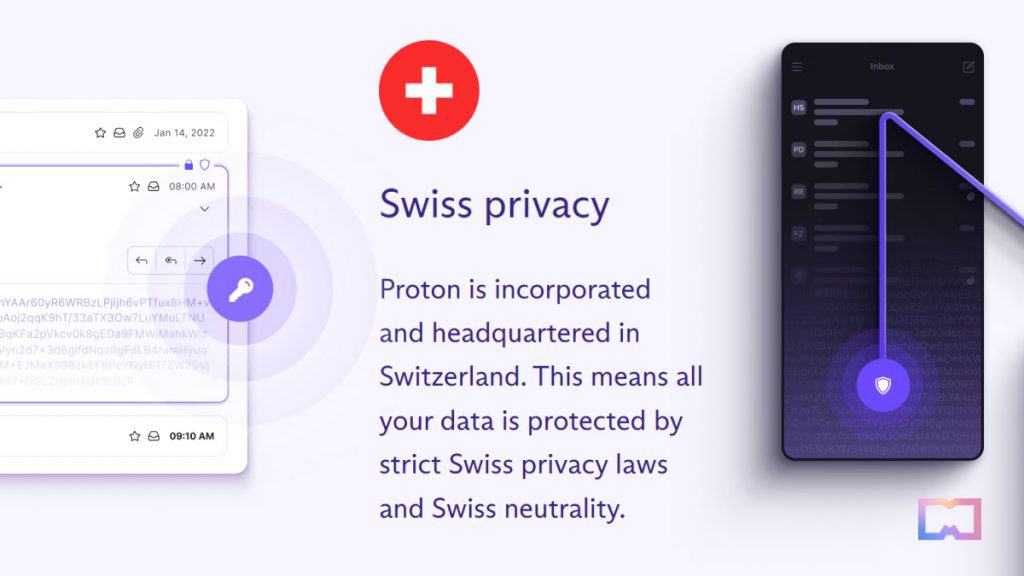Proton Mail’s Privacy Lapse Sparks Outrage Among Crypto Anonymity Advocates


In Brief
ProtonMail, a Switzerland-based secure email service focused on privacy, released a new transparency report.
According to the report, in 2022, the company provided user data to authorities in 5,957 cases out of 6,995 requests.
Over the past two years, Proton Mail’s sharing of cases with authorities has increased by 50%.

Proton Mail, a Switzerland-based secure email service focused on privacy, released a new transparency report. According to the report, in 2022, the company provided user data to authorities in 5,957 cases out of 6,995 requests.
In 2021, legal orders totaled 6,243, leading Proton Mail to disclose users’ data in 4,920 instances, marking a 20% reduction from the previous year. Similarly, authorities issued 3,767 disclosure orders in 2020, of which the company adhered to 3,017. Over the past two years, Proton Mail’s sharing of cases with authorities has increased by 50%.
“Our technology and business are based upon this fundamentally stronger definition of privacy, backed by Swiss privacy laws,” states Proton Mail’s website. However, the company said it does disclose data to authorities in accordance with its privacy policy and Swiss legislation.
How Proton Mail’s Data Sharing Led to Law Enforcement Collaborations
There have been several cases where law enforcement identified the physical location of an individual based on data provided by Proton Mail and arrested them.
For instance, in 2020, Claire Woodall-Vogg, the executive director of the Milwaukee Election Commission, finalized the presidential election results in her city and exchanged a few emails with an election consultant. In 2021, several news outlets published those emails, leading to a wave of abusive messages.
The FBI began investigating the harassment, focusing on an anonymous email sent to Woodall-Vogg from a Proton Mail user with threatening content.
In this instance, the U.S. agency collaborated with Swiss authorities to access information about the Proton user’s account. The FBI acquired a restricted amount of data from the platform, including the user’s recovery and linked email addresses.
These details played a crucial role in enabling the FBI to uncover further online information, encompassing accounts with Amazon, Apple, Coinbase, Google, PayPal, and Spotify.
Founded in 2013 in Geneva, Switzerland, and launched in 2014, Proton Mail (formerly known as ProtonMail) utilizes client-side encryption to safeguard the contents and data of emails before sending them to Proton Mail servers. This service is favored by numerous crypto enthusiasts and “whales” who prioritize anonymity and privacy.
Proton Technologies also offers such features as Calendar, Drive, VPN, and Pass, which secure users’ passwords and identities with end-to-end encryption.
Read more:
Disclaimer
In line with the Trust Project guidelines, please note that the information provided on this page is not intended to be and should not be interpreted as legal, tax, investment, financial, or any other form of advice. It is important to only invest what you can afford to lose and to seek independent financial advice if you have any doubts. For further information, we suggest referring to the terms and conditions as well as the help and support pages provided by the issuer or advertiser. MetaversePost is committed to accurate, unbiased reporting, but market conditions are subject to change without notice.
About The Author
Valeria is a reporter for Metaverse Post. She focuses on fundraises, AI, metaverse, digital fashion, NFTs, and everything web3-related. Valeria has a Master’s degree in Public Communications and is getting her second Major in International Business Management. She dedicates her free time to photography and fashion styling. At the age of 13, Valeria created her first fashion-focused blog, which developed her passion for journalism and style. She is based in northern Italy and often works remotely from different European cities. You can contact her at valerygoncharenko@mpost.io
More articles

Valeria is a reporter for Metaverse Post. She focuses on fundraises, AI, metaverse, digital fashion, NFTs, and everything web3-related. Valeria has a Master’s degree in Public Communications and is getting her second Major in International Business Management. She dedicates her free time to photography and fashion styling. At the age of 13, Valeria created her first fashion-focused blog, which developed her passion for journalism and style. She is based in northern Italy and often works remotely from different European cities. You can contact her at valerygoncharenko@mpost.io






















































